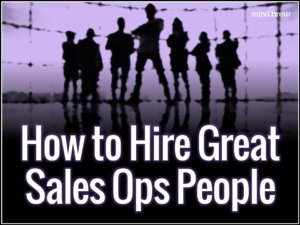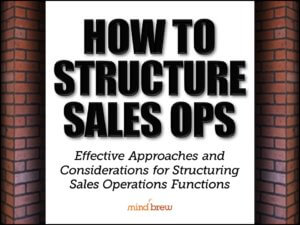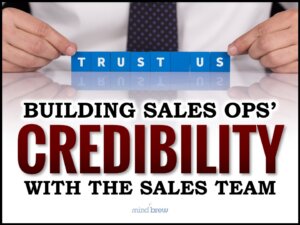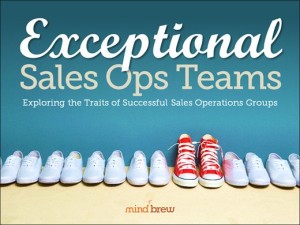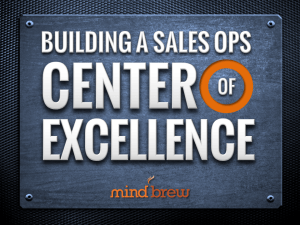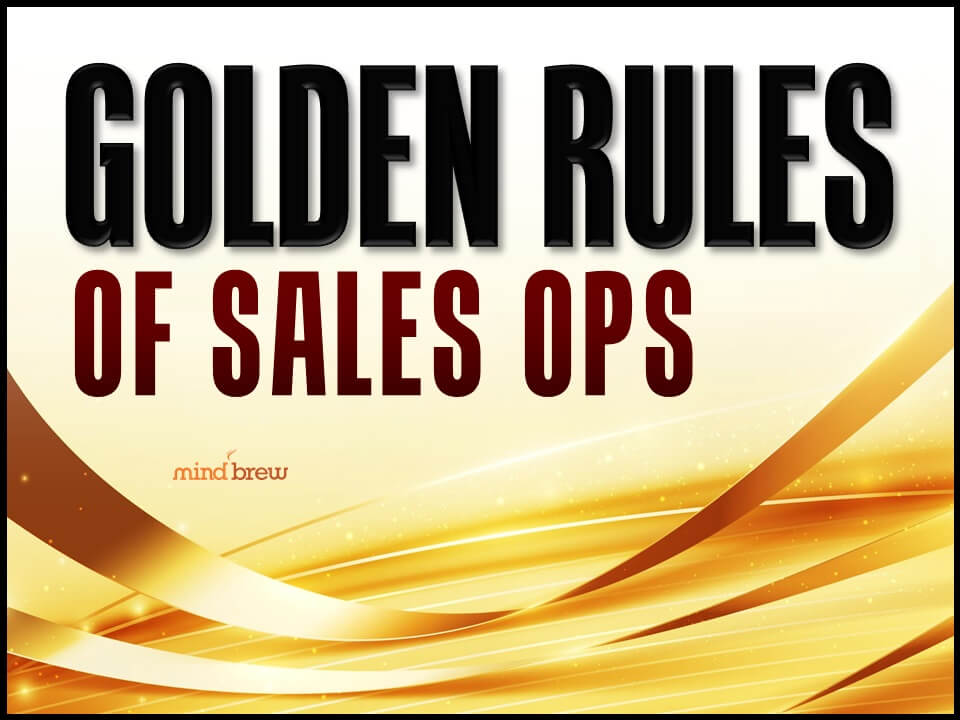When you’re building a Sales Ops function, it’s important to understand the difference between strategists and tacticians. It’s also important to understand that these terms not only describe roles, but also personality types. And it’s critical that the roles and personality types are aligned.
The cold, hard truth is that out of any 100 human beings, at least 75-80 will be natural tacticians. These are people whose personalities are such that they simply prefer to be given a specific set of tasks to execute. Tacticians will tend to be more focused on the “how” than the “why” behind their efforts. And they are often uncomfortable with uncertainty, ambiguity, and fluidity in their day-to-day work.
On the other hand, the smaller proportion of natural strategists that exist in any population will tend to be wired in such a way that they relish variety and fluidity in their work. They want to understand the underlying principles, concepts, and dynamics that are involved in any situation. And natural strategists are always looking for the next problem to solve, or the next challenge to overcome.
As for the roles within an organization, similar proportions will almost always apply. In other words, out of all of the defined roles in any given company, 75-80% will be more tactical in day-to-day practice, while 20-25% will be more strategic.
Now, one personality type or role isn’t necessary any “better” or “worse” than the other. They’re just different. And to be most successful, you’ll need both in your organization. But by recognizing the differences, you can make more informed and effective staffing decisions as you grow your function over time.
For example, we recommend that new functions should first hire a relatively small number of strategists, or “Swiss army knives” as we often refer to them. The rationale behind this recommendation has everything to do with the strategic personality type.
Early on, the function is likely to be in “problem solving” mode. It won’t yet be entirely clear what the real priorities are or what the function should be doing longer term. And there will likely be a lot of trial and error involved. The strategist personality thrives in this “figuring it out” stage of development.
Also, the people you hire very early on will be expected to wear a lot of different hats and perform a lot of different tasks. These types of dynamics will tend to make tacticians very uncomfortable. And frankly, it’s much easier for a natural strategist to execute tactically, than for a natural tactician to be more strategic.
Over time, as solutions to the bigger problems are devised and things within the function become much more defined, tacticians can then be hired to perform the specific tasks have been identified or developed.
For more established teams, one of the common problems we see is a mismatch between the role and the personality type.
When a tactician is doing a particularly good job at executing their tasks, it’s only natural to want to promote them. But if you promote a tactical personality to a strategic role, you might be setting that person up for failure. After all, tacticians make great administrators once everything is figured out, but they’re not the best strategic problem solvers.
On the other hand, let’s say a solid strategic thinker impresses you and you promote them to higher position, albeit one that is very tactical. This could also be a recipe for failure as the strategist becomes dissatisfied, negatively affecting their performance or causing them to seek employment elsewhere.
The point is that you need both strategists and tacticians to build an effective Sales Ops function. But the roles and personalities are not interchangeable…and you’ve got to understand the differences.

